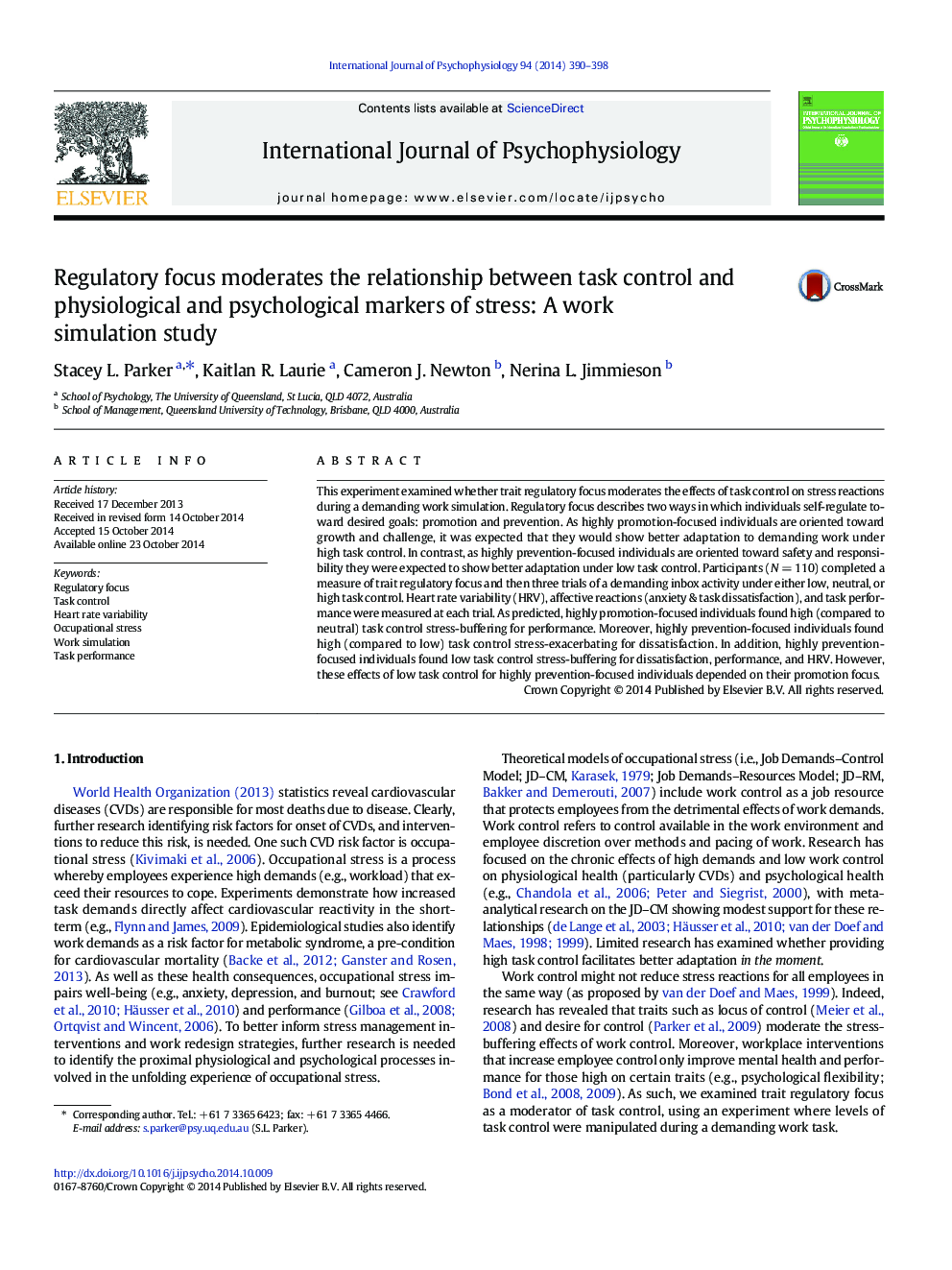| کد مقاله | کد نشریه | سال انتشار | مقاله انگلیسی | نسخه تمام متن |
|---|---|---|---|---|
| 930176 | 1474412 | 2014 | 9 صفحه PDF | دانلود رایگان |
• We examine whether regulatory focus moderates the effects of task control.
• We found that high promotion focus and high control facilitate performance.
• In contrast, high prevention focus and high control caused dissatisfaction.
• Finally, high prevention focus and low control facilitate stress reduction.
This experiment examined whether trait regulatory focus moderates the effects of task control on stress reactions during a demanding work simulation. Regulatory focus describes two ways in which individuals self-regulate toward desired goals: promotion and prevention. As highly promotion-focused individuals are oriented toward growth and challenge, it was expected that they would show better adaptation to demanding work under high task control. In contrast, as highly prevention-focused individuals are oriented toward safety and responsibility they were expected to show better adaptation under low task control. Participants (N = 110) completed a measure of trait regulatory focus and then three trials of a demanding inbox activity under either low, neutral, or high task control. Heart rate variability (HRV), affective reactions (anxiety & task dissatisfaction), and task performance were measured at each trial. As predicted, highly promotion-focused individuals found high (compared to neutral) task control stress-buffering for performance. Moreover, highly prevention-focused individuals found high (compared to low) task control stress-exacerbating for dissatisfaction. In addition, highly prevention-focused individuals found low task control stress-buffering for dissatisfaction, performance, and HRV. However, these effects of low task control for highly prevention-focused individuals depended on their promotion focus.
Journal: International Journal of Psychophysiology - Volume 94, Issue 3, December 2014, Pages 390–398
